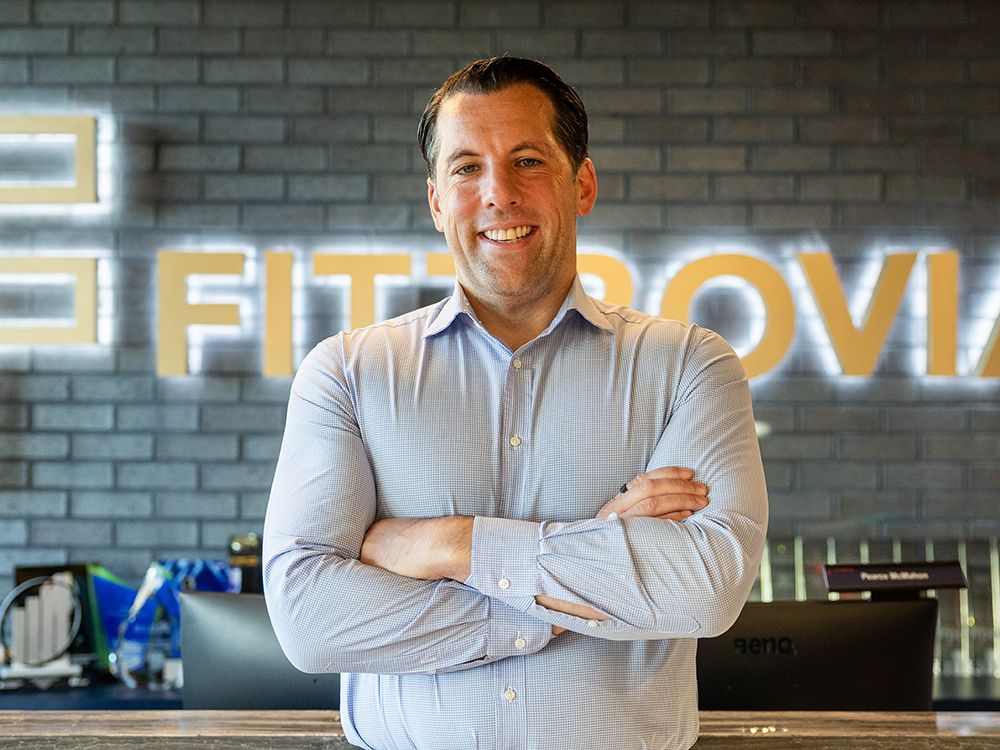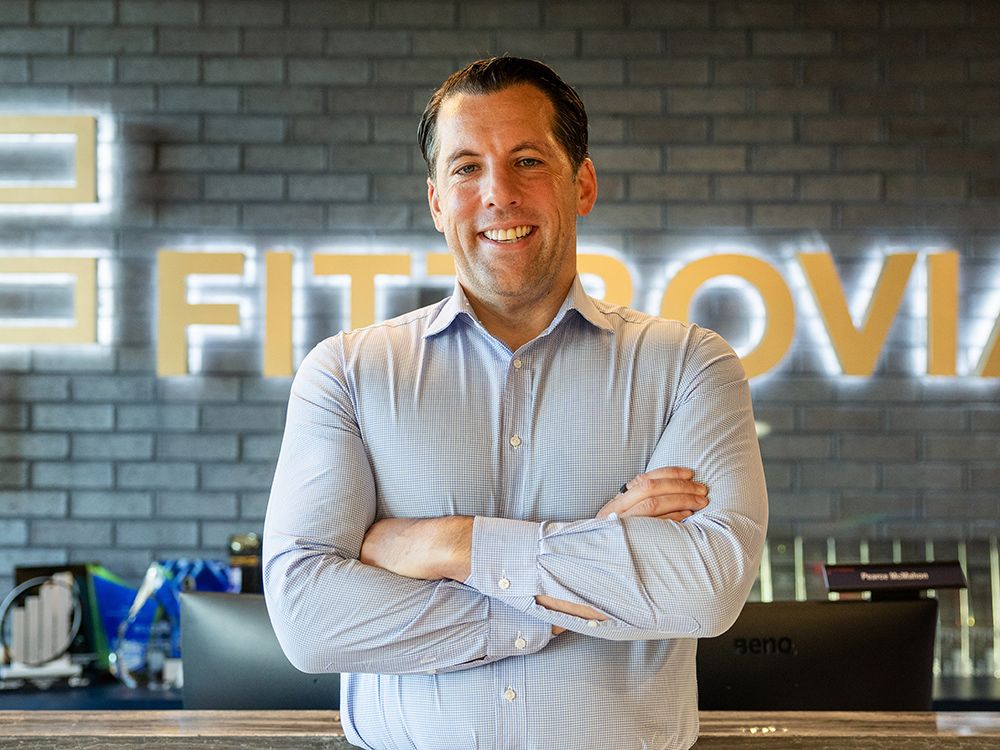
Canada needs
in the next five years for our fast-growing population, and one prominent developer sees a solution: purpose-built rental housing.
Fitzrovia CEO Adrian Rocca, who has 20 years of real estate experience and has led over $20 billion in transactions across Canada, U.S. and the European Union, maintains that governments need to take certain steps to incentivize more building.
Fitzrovia has nearly 9,000 purpose-built rental suites — meaning, not condos — completed or in development in Toronto and Montreal, with 3,000 new homes on track for next year. The company says about a third of Toronto’s households have the financial means to rent with them.
Fitzrovia says it is the only Canadian developer that manages and operates the full process in-house, from development, construction to asset and property management, leading to more efficient delivery.
Housing accounts for almost
, making it a key driver of economic growth. Facilitating investment in domestic housing is a catalyst for broader economic development, says Rocca. Each avoidable fee or delay represents lost opportunities for Canadian workers, subcontractors, and suppliers to benefit from that investment.
Rocca spoke to Dave Gordon for the National Post:
What inspired you to found Fitzrovia, and why choose purpose built rentals?
I saw home ownership rates are actually quite low in Germany. 70 per cent of the households rent, versus own. When I came back, it felt like there is a negative stigma around renting, and I almost felt empowered or passionate around changing that stigma.
I think the quality of rental housing could look vastly different if you put some TLC behind the design, the implementation, the programming, the quality of the materials. We could functionally make that product look uniquely different and bring a sense of pride of rentership, versus home ownership. It doesn’t mean that you’re a failure if you rent.
Why do you believe purpose built rental rather than condos is the solution?
We’re missing large parts of the demographic in the market that are active renters, that have been alienated from sale housing, like young families and downsizers.
We have made a big call as a business to build lots of two and three bedroom units that are generally 20 per cent larger than what’s being delivered in the condo market.
We create a social infrastructure in these buildings that deals with the new immigrants that are moving into the city with social programming. We have our own school … We also have a healthcare partnership with Cleveland Clinic for new immigrants living in our building. So if any of our residents are feeling sick, they come down to the Cleveland Clinic room.
So those are the types of social programs that are really important that the condo markets aren’t doing.
What are the biggest obstacles to meeting building targets?
A lot of it relates to financial incentives. The economic model is under a lot of stress. New starts, depending on the data, are down 50 to 90 per cent. There’s not many projects that are ever going to hit the presale threshold of 70 per cent or 80 per cent that’s required to get construction financing. Interest rates have really hurt that.
Price per square foot dropped by 30 per cent in a year and a half. That’s going to crush your margins. It’s got to be made up by the government stepping in, and waiving development charges and waiving property tax for 20 years.
We’ve had great engagement with all three levels of government, but we need to turn that engagement to proper policy.
When immigration and demand is growing, we’re going to have a catastrophe of a housing crisis in three to four years.
You can’t just turn on the switch, and get new supply coming on the market. Takes four years to put a high rise project into the market, and then get it fully delivered, get it designed, get it approved, pull your permits, and then construct it. If you’re fast, it’s four years. So it’s going to create an extremely tight rental market, which is not good for the end consumer.
What kind of specific policy reforms would have the most immediate impact?
About 30 per cent of our total development cost to build is municipal fees, development charges, government levies. So development charges are used to fund infrastructure. So as you’re building, the city would need the infrastructure to support that housing, which is all fair, very important. The problem is, it’s a very archaic form of funding, because that’s ultimately passed on to the developer, who’s passing it on to the end consumer.
In the U.S., they have what’s called infrastructure bonds that could get issued, or municipal bonds, to fund out that infrastructure. So you’re basically taking 15 per cent cost of financing, which is what the developer needs to earn, because it’s very risky to develop high rise rental, and you’re replacing that with a 4 per cent cost of debt through these infrastructure bonds. It’s a very effective tool. It also brings other forms of capital into the market.
We can’t do it off pure government funding. We need to partner up with the private sector, and get all forms of funding to the table. Not just institutional capital; it’s retail capital, it’s foreign capital.
What impact do American tariffs have on your project?
The tariffs, when we’ve done our analysis, add about three and a half percent of our costs.
Not all developers in Canada, especially around rental housing, are actually owned by Canadians. So we have a firm commitment to support, wherever possible, Canadian suppliers. Could be brick suppliers, brick manufacturers, that could be HVAC solutions, that could be glass, that could be elevator supply, you name it.
In some cases, it’s more expensive, even with the tariffs, or there’s a difference in quality level. So we are actively working with a number of our suppliers, to equalize some of those items, whether it’s quality or price.
With purpose built rentals, how does Canada win?
Canada wins by creating as much new housing as possible, but the right type of quality housing. We want to provide rental housing for the masses, not just for students or young professionals, that are living in a small condo size apartments downtown.
It’s actually, in a lot of cases, a smart financial decision to rent, and keep the flexibility of being able to live wherever you want to live, and not be saddled by a large mortgage.
This interview has been edited for brevity.
This is the latest in a National Post series on How Canada Wins. Read earlier instalments here.
Our website is the place for the latest breaking news, exclusive scoops, longreads and provocative commentary. Please bookmark nationalpost.com and sign up for our daily newsletter, Posted, here.
